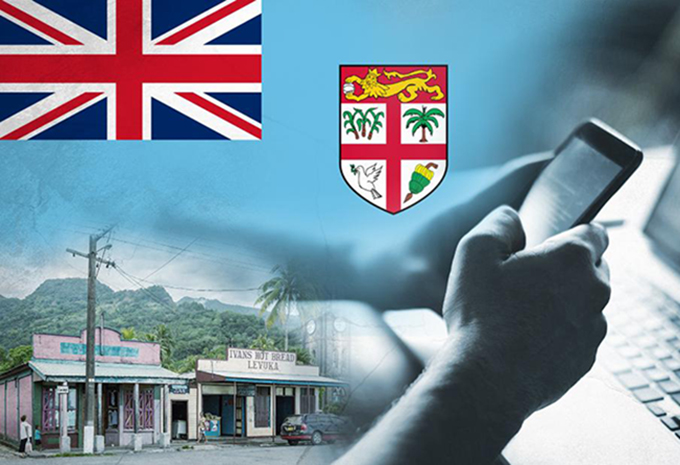
By James Griffiths of CNN
SUVA (CNN/Pacific Media Watch): The men passed the link between them, sharing it over email and instant messages. It was to a public Dropbox folder, containing hundreds of nude and intimate images of women, mostly students at the Fiji campus of the University of the South Pacific.
News of the folder's existence was broken by the Fiji Sun, which later carried an interview with a victim in which she spoke of being harassed on both social media and offline over photos taken with an ex-boyfriend. She had considered suicide.
More coverage followed, sparking what the Sun described as a "nationwide debate on cyber laws".
READ MORE: The 'Trojan horse' internet law
Government ministers called for swift action to protect Fijians online -- and Attorney-General Aiyaz Sayed-Khaiyum delivered, introducing the Online Safety Bill to Parliament and calling for its passage to be fast-tracked.
In May 2018, after an unusually short two-month public consultation, the bill was passed into law, becoming the Online Safety Act 2018.
Only government lawmakers voted in favor of the new law, with every opposition lawmaker voting against it. Under the new law, someone who "posts an electronic communication where posting the electronic communication causes harm to the individual" could be liable to a fine of F$9,400 and up to five years in prison.
While supporters of the law hailed it as a victory for women and a strike against online harassers and trolls, critics -- including rights groups and youth and women's organisations -- warned it was a potential "Trojan horse" for internet censorship.
As concerns grow over issues such as cybersecurity, fake news, internet harassment and revenge porn, a number of countries are pushing towards greater regulation of the internet.
However for every well-meaning attempt to protect people online, there is an example of lawmakers seeking to co-opt such concerns to stifle dissent and censor criticism.
Representatives for Fiji's Attorney General, the Ministry of Communications and the Ministry of Information did not respond to a request for comment for this article.
Media controls
Between 1970 -- when Fiji achieved independence from British colonial rule -- and 2014, the Pacific island nation had four military coups, with the most recent, in 2006, lasting eight years.
The man behind that coup was Fiji's current Prime Minister, Voreqe Bainimarama, who was democratically elected in 2014 in the country's first free election in almost a decade.
A former commodore in the Fijian Navy, Bainimarama has overseen moderate economic growth and moved the country towards China, and away from traditional allies Australia and New Zealand.
During the coup years, Bainimarama's government exercised tight control of the Fijian media, embarking "on the most intense and sustained media crackdown in the country's history, claimed to be justified on the basis of improving journalistic professionalism, curbing inflammatory reporting, and ensuring social stability," according to University of the South Pacific journalism academic Dr Shailendra Singh.
However, Dr Singh notes that while the situation worsened under military control, "freedoms historically enjoyed by the Fiji media have always been fragile, even under democratic rule."
This tight control of traditional media -- with most newspapers and television stations either government controlled or singing from the same hymn book -- led many Fijians, particularly young people, to go online in search of alternative news sources, said Jope Tarai, a Fiji-based scholar at USP.
"The current media landscape has really been shaped by the events of 2006," Tarai told CNN.
"There's been an interesting evolution of censorship in our country. There were media censors in the newsrooms in 2006 -- that has now transformed itself into a culture of self-censorship."
As Fiji transitioned back to democratic rule in 2014, online publications and social media groups were very active in covering the subsequent election, and in boosting criticism of the incumbent Bainimarama government, which went on to win by a landslide.
About half of Fiji's 905,000-strong population is online, above average for middle-income countries in the Oceania region.
Of those internet users, almost all are on Facebook, according to advertising data from the social network, which is by far the biggest in Fiji.
On Facebook, groups such as Letters to the Editor Uncensored (LEU) "have emerged as a direct result of the decreasing space for public dialogue in mainstream media," according to a report on digital activism in Fiji in the journal Asia and the Pacific Policy Studies.
On its Facebook page, LEU states that it is "a forum to post news, articles, press releases, opinions and concerns which HAVE NOT or WILL NOT be published in mainstream media due to unfair media laws and self-censorship in Fiji."
Fake news
After the 2014 elections, in which Facebook groups like LEU played a key role, "there were key (government) officials raising concerns about discussions mainly on social media," Tarai told CNN.
The comments come after Tarai wrote in an article for the Pacific Journalism Review late last year noting: "Unfortunately, the potential to harness social media use for greater citizen participation and empowerment has often been overlooked. Instead, what prevailed was a largely one-sided, sensationalised obsession on the dangers of vitriolic and mediocre online discussions.
Read the full article
Fiji Population: 905,000
GDP: $5.06 billion
Internet penetration: 50 percent
Facebook penetration: 99 percent
Source: World Bank, International Telecommunications Union, Facebook
This work is licensed under a Creative Commons Attribution-NonCommercial 3




